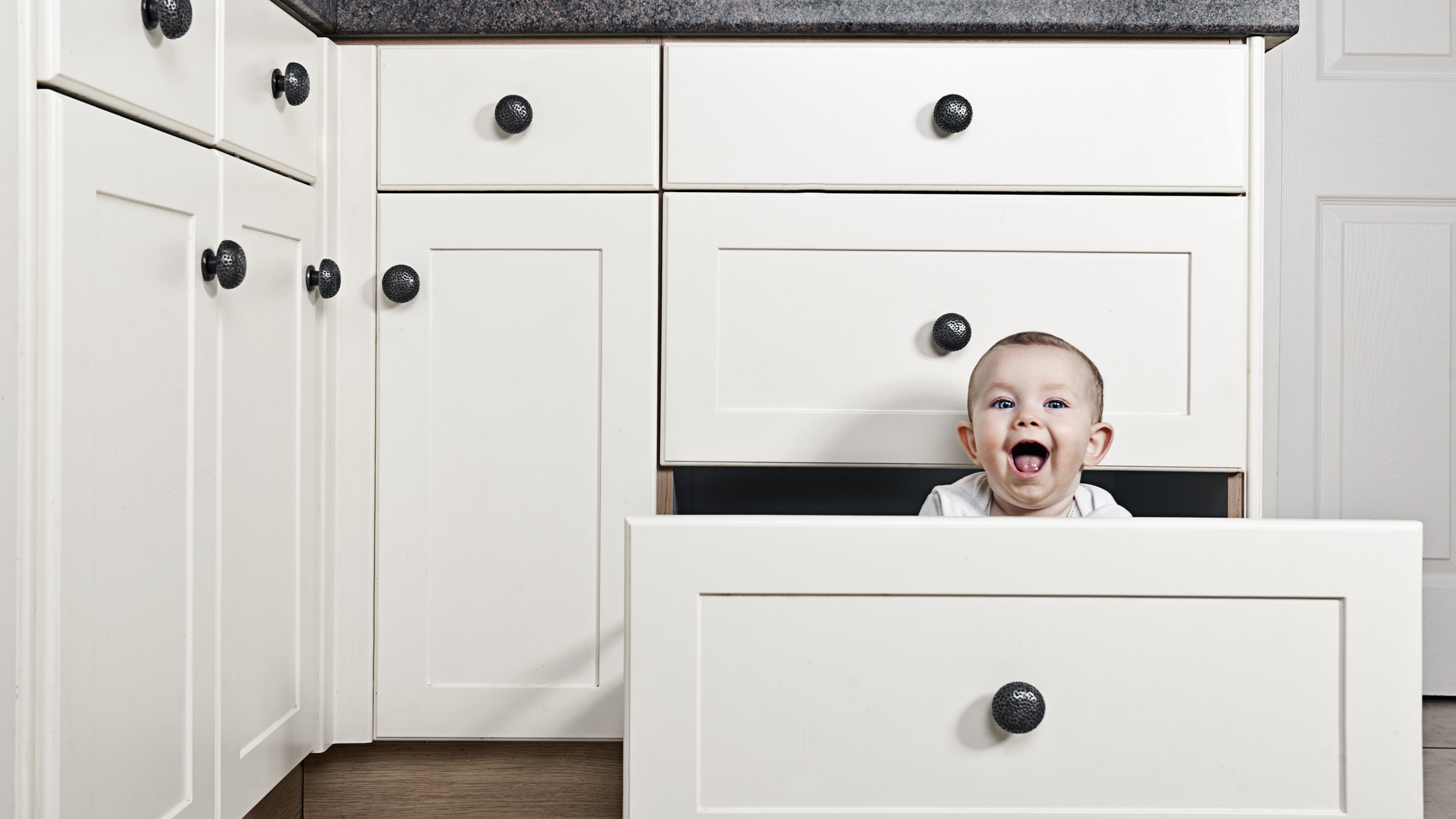Estate Planning for When ‘Baby Oops’ Comes Along
Here are four estate planning tasks to keep in mind to ensure Baby Oops gets what they need if you become incapacitated or pass away.


Profit and prosper with the best of Kiplinger's advice on investing, taxes, retirement, personal finance and much more. Delivered daily. Enter your email in the box and click Sign Me Up.
You are now subscribed
Your newsletter sign-up was successful
Want to add more newsletters?

Delivered daily
Kiplinger Today
Profit and prosper with the best of Kiplinger's advice on investing, taxes, retirement, personal finance and much more delivered daily. Smart money moves start here.

Sent five days a week
Kiplinger A Step Ahead
Get practical help to make better financial decisions in your everyday life, from spending to savings on top deals.

Delivered daily
Kiplinger Closing Bell
Get today's biggest financial and investing headlines delivered to your inbox every day the U.S. stock market is open.

Sent twice a week
Kiplinger Adviser Intel
Financial pros across the country share best practices and fresh tactics to preserve and grow your wealth.

Delivered weekly
Kiplinger Tax Tips
Trim your federal and state tax bills with practical tax-planning and tax-cutting strategies.

Sent twice a week
Kiplinger Retirement Tips
Your twice-a-week guide to planning and enjoying a financially secure and richly rewarding retirement

Sent bimonthly.
Kiplinger Adviser Angle
Insights for advisers, wealth managers and other financial professionals.

Sent twice a week
Kiplinger Investing Weekly
Your twice-a-week roundup of promising stocks, funds, companies and industries you should consider, ones you should avoid, and why.

Sent weekly for six weeks
Kiplinger Invest for Retirement
Your step-by-step six-part series on how to invest for retirement, from devising a successful strategy to exactly which investments to choose.
You’re likely all too familiar with the concept. Most families have children with fairly narrow age gaps. The median age gap between children is just 24 to 29 months. But every now and then, after it seems apparent to everyone — including the parents — that the family is fully formed, along comes Baby Oops 10 years later, and two kids becomes three as everyone rejoices.
Parents and grandparents should be mindful amid the pomp and circumstance of the new baby’s arrival, however. There are important estate planning considerations attached to having a child roughly a decade younger than their siblings. Throughout Baby Oops’ childhood, they’ll be at a substantially different stage of life than other siblings and will likely have different needs as a result.
For anyone who finds themselves or their adult children in this situation, here’s a short checklist of what you need to keep in mind:
From just $107.88 $24.99 for Kiplinger Personal Finance
Become a smarter, better informed investor. Subscribe from just $107.88 $24.99, plus get up to 4 Special Issues

Sign up for Kiplinger’s Free Newsletters
Profit and prosper with the best of expert advice on investing, taxes, retirement, personal finance and more - straight to your e-mail.
Profit and prosper with the best of expert advice - straight to your e-mail.
1. Make sure you update your beneficiary designations.
Unlike your last will and testament, which often does take into account the possibility of there being future children on the horizon, your beneficiary designations may not offer the same convenience. Take your life insurance policy, for example. Your life insurance policy isn’t a probate asset, so it’s not covered by your will. Let’s say you’ve left the proceeds of your life insurance policy to each of your first two children by designating them as your beneficiaries: Your will might automatically account for Baby Oops, but your life insurance policy won’t.
You’d be surprised how often this becomes a problem, and it’s what people overlook the most, based on my experience. Make sure not to accidentally forget to add Baby Oops to your life insurance policy or any other non-probate assets.
2. Think about updating guardians for your children in your will.
It’s one thing to designate the grandparents as the guardians for your 9- and 10-year-olds in case anything happens to you. Kids are fairly independent by this age, and any parent knows that caring for a fifth grader is very different than taking care of a baby. For making sure children are doing their homework and getting to soccer practice, grandparents may be appropriate guardians.
However, for constantly running around and even rolling on the floor to play with a baby and change diapers, grandparents may not be ideal guardians, while a sibling might be. This is one of the most significant areas of the age gap having an effect.
3. Have another look at all of your fiduciary appointments.
Sure, usually when you hear the word “fiduciary,” you probably think first of a financial adviser. In this instance, we’re referring to your executor, your trustee — all of the people you name to carry out your various estate planning wishes.
Now, maybe you’ve given that designation to your 16- or 17-year-old, provided they’ve reached the age of 18 when the time comes. With Baby Oops, maybe you also want to appoint them when they attain the age of 18. This way, all of your children — once they’ve become adults — can work together as your fiduciaries. To do this, you’ll want to update your appointments so that Baby Oops can be part of the process.
4. Consider a pot trust to ensure fairness for your children.
If you have older children, you’ve probably paid for many of their expenses already, while Baby Oops didn’t have the benefit of receiving many of the same things you paid for. That’s where a pot trust comes in. It’s basically a pot of funds for all of your named beneficiaries, managed by a trustee, where the trustee has the power to determine how assets are distributed.
This allows for desired complexity when slicing up the pie equally after you’re gone might not actually be the fairest method of doing things.
Takeaway
Having an unexpected, late addition to your happy family is a source of joy that is in so many ways a gift. But with enough of an age gap between children, there will be half a generation between your oldest and youngest. In the event that you pass away or become incapacitated, the youngest child’s needs will be very different.
So if Baby Oops does come along for you or someone close to you, don’t forget to have a close look at your estate planning documents to make sure everything is exactly as you wish it to be.
Profit and prosper with the best of Kiplinger's advice on investing, taxes, retirement, personal finance and much more. Delivered daily. Enter your email in the box and click Sign Me Up.

Allison L. Lee is the Attorney-at-Law, Director Trusts & Estate Content for FreeWill, a mission-based public benefit corporation that partners with nonprofits to provide a simple, intuitive and efficient online self-help platform to create wills and other estate planning documents free of cost. Through its work democratizing access to these tools, FreeWill has helped raise billions for charity. Prior to joining FreeWill, Allison spent more than a decade in private practice.
-
 Dow Adds 1,206 Points to Top 50,000: Stock Market Today
Dow Adds 1,206 Points to Top 50,000: Stock Market TodayThe S&P 500 and Nasdaq also had strong finishes to a volatile week, with beaten-down tech stocks outperforming.
-
 Ask the Tax Editor: Federal Income Tax Deductions
Ask the Tax Editor: Federal Income Tax DeductionsAsk the Editor In this week's Ask the Editor Q&A, Joy Taylor answers questions on federal income tax deductions
-
 States With No-Fault Car Insurance Laws (and How No-Fault Car Insurance Works)
States With No-Fault Car Insurance Laws (and How No-Fault Car Insurance Works)A breakdown of the confusing rules around no-fault car insurance in every state where it exists.
-
 For the 2% Club, the Guardrails Approach and the 4% Rule Do Not Work: Here's What Works Instead
For the 2% Club, the Guardrails Approach and the 4% Rule Do Not Work: Here's What Works InsteadFor retirees with a pension, traditional withdrawal rules could be too restrictive. You need a tailored income plan that is much more flexible and realistic.
-
 Retiring Next Year? Now Is the Time to Start Designing What Your Retirement Will Look Like
Retiring Next Year? Now Is the Time to Start Designing What Your Retirement Will Look LikeThis is when you should be shifting your focus from growing your portfolio to designing an income and tax strategy that aligns your resources with your purpose.
-
 I'm a Financial Planner: This Layered Approach for Your Retirement Money Can Help Lower Your Stress
I'm a Financial Planner: This Layered Approach for Your Retirement Money Can Help Lower Your StressTo be confident about retirement, consider building a safety net by dividing assets into distinct layers and establishing a regular review process. Here's how.
-
 The 4 Estate Planning Documents Every High-Net-Worth Family Needs (Not Just a Will)
The 4 Estate Planning Documents Every High-Net-Worth Family Needs (Not Just a Will)The key to successful estate planning for HNW families isn't just drafting these four documents, but ensuring they're current and immediately accessible.
-
 Love and Legacy: What Couples Rarely Talk About (But Should)
Love and Legacy: What Couples Rarely Talk About (But Should)Couples who talk openly about finances, including estate planning, are more likely to head into retirement joyfully. How can you get the conversation going?
-
 How to Get the Fair Value for Your Shares When You Are in the Minority Vote on a Sale of Substantially All Corporate Assets
How to Get the Fair Value for Your Shares When You Are in the Minority Vote on a Sale of Substantially All Corporate AssetsWhen a sale of substantially all corporate assets is approved by majority vote, shareholders on the losing side of the vote should understand their rights.
-
 How to Add a Pet Trust to Your Estate Plan: Don't Leave Your Best Friend to Chance
How to Add a Pet Trust to Your Estate Plan: Don't Leave Your Best Friend to ChanceAdding a pet trust to your estate plan can ensure your pets are properly looked after when you're no longer able to care for them. This is how to go about it.
-
 Want to Avoid Leaving Chaos in Your Wake? Don't Leave Behind an Outdated Estate Plan
Want to Avoid Leaving Chaos in Your Wake? Don't Leave Behind an Outdated Estate PlanAn outdated or incomplete estate plan could cause confusion for those handling your affairs at a difficult time. This guide highlights what to update and when.